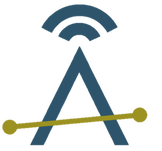Two-fifths of U.S. adults care for sick, elderly relatives, according to recent Pew Research.
High demand for Home Care is forcing Home Care agencies to automate operations and coordinate with other providers.
Pew Research Center's Internet and American Life Project recently uncovered some interesting facts about the rate at which family members are acting as caregivers. The stress and absenteeism associated with caregiving is well documented, costing employers billions of dollars annually. Already at a crisis level, the recent Pew project discovered that 40% of the population is acting as the primary caregiver for a family member. Most staggering of all, perhaps, is the revelation that the number of family caregivers has increased more than 10% in the last three years alone (2010-2013) and continues to rise.
Complicating matters, half of the US population has a chronic disease, and 75% of those 65 and over have at least one. As the population continues to age, every indication is that families will need to provide care for family members at an increasing rate with no end in sight. It's already an epidemic and well beyond sustainability.
Families need help and they are increasingly turning to Home Care providers, also called Private Duty Home Care. These are trained professionals with Certified Nursing Assistants (CNA) and nurse case managers, and Geriatric Care Managers (GCM) on staff who are expert in common conditions such as dimentia and fall prevention, trained to assist with activities of daily living, among others. With this type of help, elderly patients are able to live longer lives and remain more independent at home. The demand for these services is only growing. Not surprisingly, the relief to families is instant once they hire a caregiver from a professional, reliable agency.
The call for staff in this area is so urgent that the Bureau of Labor Statistics predicts that this will be one of the fastest growing areas of employment in our economy for the next decade or longer.
As this segment of care takes on a greater role and continues to expand, the demand to coorindate care with other providers will become even more complex. Home Care Agencies must cooperate with Primary Care physicians, nurse case managers, and other types of home care services. Home health agencies, hospitals, accountable care organizations are fast realizing that home care is an efficient way to reduce hospitalizations among a fragile patient population and to keep patients healthier and happier in their homes.
As workloads and complexity of care rise, Home Care agencies must automate operations. Managing staff, schedules and point of care documentation is incredibly difficult and costly to do maually. Calculating payroll and billing using manual methods routinely consumes many hours and even days of administrative time in each billing (or payroll) period. Automation is required not only to be profitable, but also to coordinate care with other providers of various types.
Fortunately Ankota has made it easy for Home Care agencies to automate operations from start to finish: from scheduling to care plans and point of care documentation on tablets, to real time work tracking through a telephony (IVR) interface, automatically calculating billing and payroll, and managing communications with family members and other authorized caregivers. It even automates referral processes to make your agency easier to do business with. Most agencies learn very quickly and are up and running in only a couple of weeks. The system is so efficient that it typically pays for itself in a few months or less.
Learn more about the future direction of Home Care and Ankota's technology that takes you there.






Your Comments :